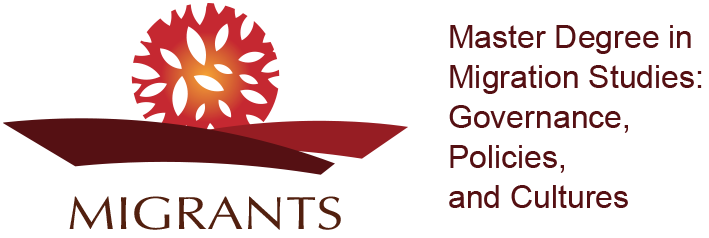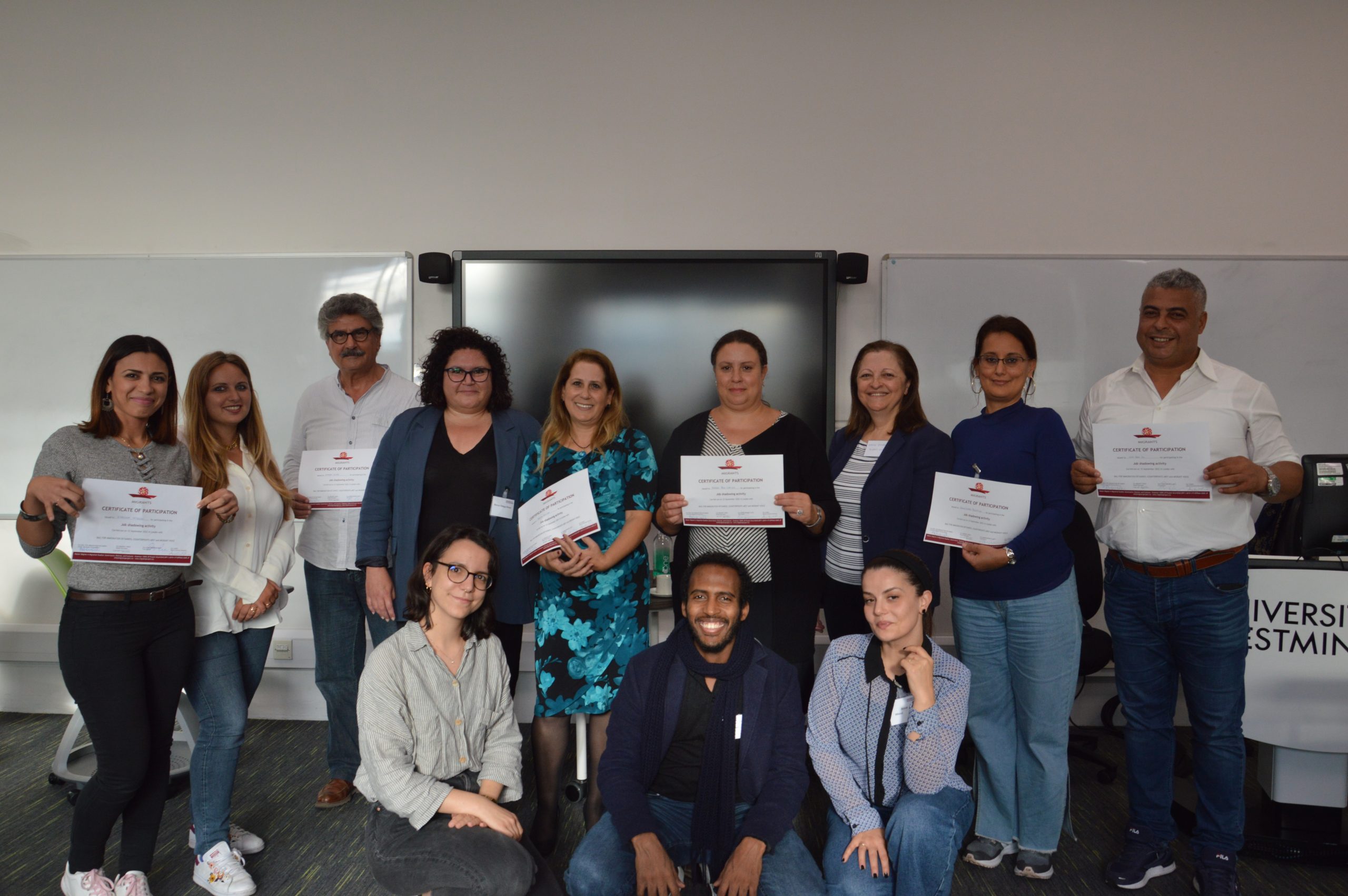Job Shadowing at Westminster University: Migrant Voice and other organisations present their work on migration issues
Reframing the discourse about migration is an important issue that should be addressed by different actors at many levels.
As we know, as a global trend borders are no longer at the edge of a state, but externalised to other countries as well as embedded inside society among ordinary citizens and through greater digitisation of border controls. Across Europe, the externalisation of borders and the increasing criminalisation of migration and those rescuing or showing solidarity to migrants demeans the notion of European values and institutions we claim to uphold. That is why advocacy on this issue is required from many stakeholders if we want to raise awareness about immigration controls, the responsibilities and the way things are being told about it.
Universities and Ngos could make the difference in this field and that is one of the objectives of the MIGRANTS project, an international network of universities and NGOs that works on Migration Studies.
One of the last event of the project have been held in London at the University of Westminster and it involved many different organisations such as Migrant Voice, Counterpoints Arts and Bail for Immigrants Detainee (BiD). As part of the London Summer School, Thursday 8th September and Monday 12th September were devoted to Job Shadowing activities. On Thursday 8th, the activities involved an Advocacy Roundtable on Externalization of Borders with Migrant Voice, Amnesty International UK, Right to Remain, United against Inhumanity (UAI), International Centre for Eritrean Refugees and Asylum Seekers (ICERAS), Global Strategic Communications Network, Regularise, The Migration Observatory, Migrants Organise, Praxis. The roundtable and ensuing debates were a great opportunity to tackle the issue of border externalization from epistemological, historical, political, legal and humanitarian angles. The participants not only exchanged opinions and experiences about obvious and known-to-all externalization policies, but they also delved into concealed and indiscernible externalization mechanisms and dynamics in the Global North and between North and South.
The 12 September Job Shadowing Activities were organized with three london-based organizations: Migrant Voice, Counterpoints Arts and Bail for Immigrants Detainee (BiD). The professors and PHD students from the Universities of El Manar, La Manouba, and Tunis were involved in three sessions with the three aforementioned organizations, with a view to fathoming the actions of the three civil society representatives in relation to migrants. Hence, they engaged in discussions about case studies on advocacy, campaigning, lobbying and communication. The sessions included group work and open discussions about migration issues like integration through art, self-empowerment of migrants through voicing their own narratives and concerns, defiance of the lingering “hostile environment”, notably with regard to detainees and deportees.
“Thanks to the job shadowing activities I had the opportunity to discover and gain insights into migration-related issues from the perspectives of migrants and professionals working for NGOs. The experience was indeed enlightening, constructive and thought-provoking. During the workshops on immigration detention, migrant (self) representations and migrant arts, I learned about what is often hidden or unsaid in mainstream narratives around migration which is also one of the major objectives of my doctoral research. The workshops were spaces wherein I was required to reflect upon the work of NGOs on the one hand, listen and directly communicate with migrants and learn about their complex journeys, on the other. Overall, participating in the job shadowing activities enabled me to further develop my observational, interpersonal and analytical skills, all of which are indispensable to carry out research on and teach migration”, said Khaoula Zitouni, PhD candidate for the Migrants project.
Migrants Project is co-fundend by the Erasmus+ Programme of European Union- Capacity Building in the Field of Higher Education that aims to promote a broad multi-stakeholder partnership to address higher education in migration in Tunisia.

